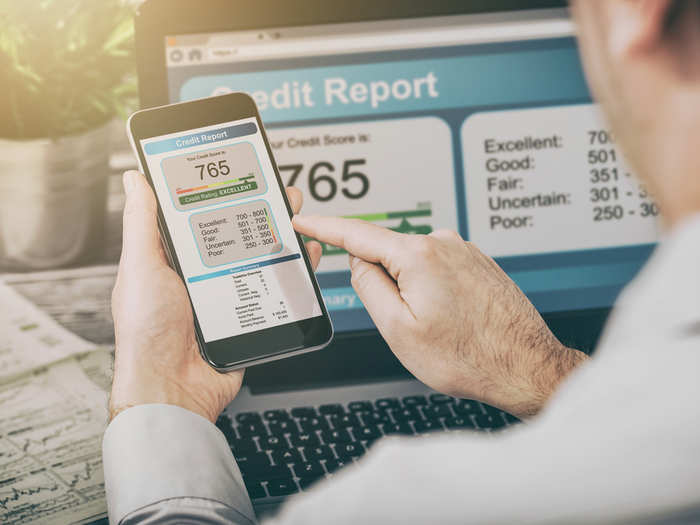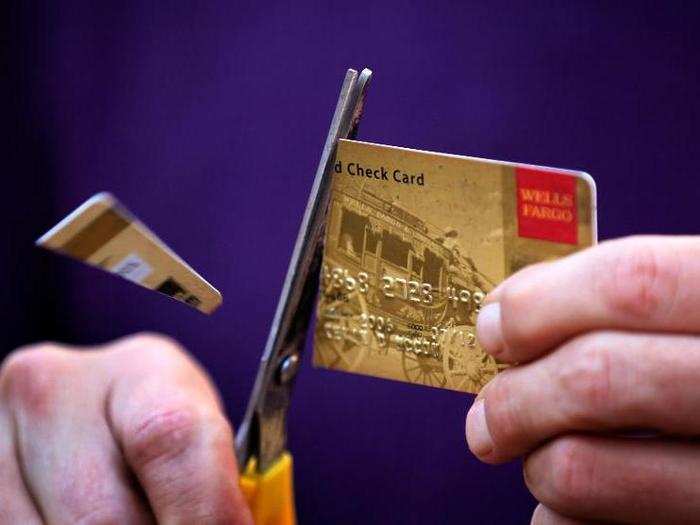- Home
- slideshows
- miscellaneous
- 5 reasons your credit could be terrible, even if you think it's not
5 reasons your credit could be terrible, even if you think it's not
1. You've made late payments

2. You make minimum payments on credit cards

"Even if you pay on time, if you run high balances and only make minimum payments you can lower your credit score," Cooper said.
If you're charging up your credit cards but not paying down the balance, you might have exceeded the optimal debt-to-available-credit ratio without knowing it. Your credit score can suffer if you have used more than 30% of your available credit. The ratio is calculated on your total credit and debt, not on each card.
To keep your credit score within a good range, keep an eye on this ratio and calibrate your monthly payments to keep your balances low. If that's not possible, you could open another credit card to extend the amount of credit available to you, thus reducing your ratio.
3. Your loan has been sold, and you don't know it

"One of the reasons that people have bad credit and don't know it is because their loan was sold or transferred to a different financial institution," Cooper said. This is a particular issue for mortgages, because your mortgage may be sold several times during the life of the loan, according to Findlaw.
If your mortgage servicer, which is the bank or processor to whom you send your mortgage payments, changes (which often happens when a loan is sold), it can cause problems.
You may think you're making your mortgage payments on time, but if your payment is going to a different place, you could end up falling behind. Cooper noted that this is a particular problem for people who set up automatic payments, because they might not open pro forma mailings from their servicers.
Mortgage servicers are required to notify you of any changes. To avoid this credit score pitfall, make sure your mortgage servicer has your current address, email, and phone number. And open everything you get from your servicer, even if it looks like junk mail.
4. You've had a lot of credit checks

Your credit "can be significantly impacted by the number of inquiries," Cooper said. According to Credit Karma, there are two types of credit inquiries: hard and soft.
When you check your own credit score, it's a “soft inquiry” that won't affect your credit. When you apply for a loan or a new credit card, the lender will do a “hard inquiry,” or “hard pull,” of your credit history to inform its lending decision. Too many hard inquiries in a short time period will drag down your score, according to NerdWallet.
5. You closed an old credit account

When you open a new credit account or close an older one, it can cause your credit score to dip, even if you've never had a late payment or you're not using the old card. Credit bureaus look at the average length of your credit history on all your accounts; the longer the better. “If you’re getting new accounts,” Cooper said, “try to stagger those over time.”
He added, "If you're planning on applying for a home loan or other major credit event," Cooper said, " avoid closing your oldest credit lines; that may lower your credit."
To find out more about the factors that could affect your credit score and how you might improve it, try a credit score simulator, which calculates how your credit score may change based on the financial decisions you plan to make.
You should also check your credit score at least once a year, though Cooper suggested doing it every quarter, if you can. Many credit card companies give you access to your credit score, as well as sites like Credit Karma and Credit Sesame. You can also get one free credit report from each credit bureau every year.
Popular Right Now
Popular Keywords
Advertisement